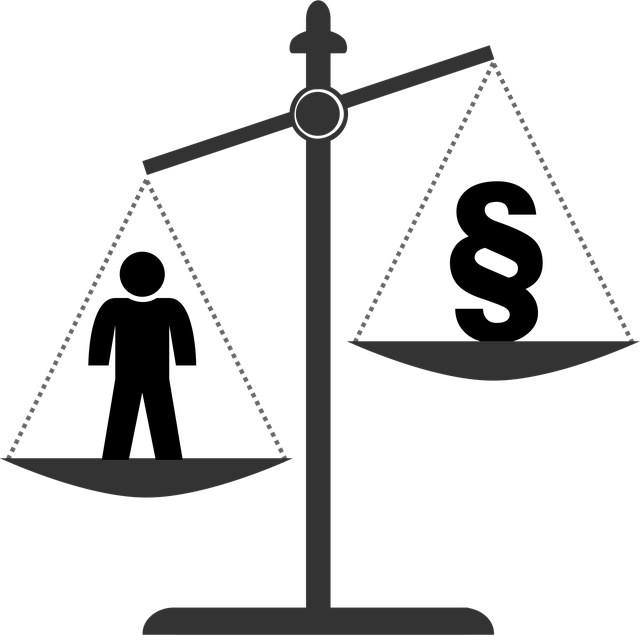Corporate crime investigations tackle illicit business activities across territories, scrutinizing financial records, corporate structures, and internal policies. A significant challenge is navigating administrative law cases with ambiguous regulations, requiring understanding of regulatory requirements, compliance assessment, and liability determination. By employing meticulous evidence review and legal expertise, investigators address common issues in administrative law cases, promoting transparency and accountability while closing legal loopholes exploited by companies and individuals. Effective evidence handling, ethical standards, and international collaboration are vital for robust investigations and fair litigation outcomes.
Corporate crime investigations delve into illicit activities within organizations, spanning fraud, corruption, and regulatory violations. This article explores key facets of these probes, from understanding the legal landscape and exposing common loopholes to mastering evidence handling and navigating ethical dilemmas. We also venture international perspectives on regulatory enforcement, shedding light on global trends and challenges in addressing corporate misconduct, all relevant insights for legal professionals tackling administrative law cases involving corporate defendants.
- Understanding Corporate Crime Investigations
- Common Legal Loopholes Exposed
- Evidence Handling: Best Practices
- Ethical Considerations in Private Investigations
- International Perspectives on Regulatory Enforcement
Understanding Corporate Crime Investigations

Corporate Crime Investigations delve into complex issues that arise when businesses engage in illicit activities. These investigations, which span across the country, are crucial for upholding ethical standards and ensuring fair practices within corporations. The process involves a thorough examination of financial records, corporate structures, and internal policies to uncover wrongdoings that often remain hidden beneath the surface.
One of the key challenges in these investigations is navigating the intricate web of administrative law cases. Common Issues in Administrative Law Cases play a significant role throughout all stages of the investigative and enforcement process. This includes understanding regulatory requirements, assessing compliance, and determining liability for respective business entities involved. By meticulously reviewing evidence and applying legal expertise, investigators aim to deliver justice while fostering transparency across different industries.
Common Legal Loopholes Exposed

In the realm of corporate crime investigations, uncovering legal loopholes has become a critical aspect of ensuring justice. Many companies and individuals exploit vague or outdated laws to avoid accountability for their actions. Common issues in administrative law cases often revolve around ambiguous regulations, leaving room for interpretation and allowing potential abusers to escape scrutiny. For instance, complex financial transactions can be structured to fall within legal gray areas, particularly in the realm of white-collar and economic crimes.
These loopholes are not limited to specific industries; they exist across various sectors, impacting the overall integrity of business operations. Legal professionals and investigators must stay abreast of legislative changes and reforms aimed at closing these gaps. Addressing common issues in administrative law cases is essential to strengthening general criminal defense strategies for respective businesses, fostering a more transparent and accountable corporate environment.
Evidence Handling: Best Practices

Effective evidence handling is paramount in corporate crime investigations, where the stakes are high and the consequences significant. Legal professionals must adhere to strict protocols to ensure the integrity and admissibility of evidence, addressing common issues in administrative law cases. One crucial aspect is maintaining a detailed chain of custody, documenting every step from collection to presentation, to avoid indictment and safeguard the rights of all parties involved.
Best practices include secure storage, proper labeling, and immediate documentation. Evidence should be handled by authorized personnel only, with clear protocols for transportation and preservation. This meticulous approach, combined with an unprecedented track record in managing complex cases, ensures that investigations remain robust and any legal challenges are met with robust, defensible evidence.
Ethical Considerations in Private Investigations

In the realm of corporate crime investigations, private investigators often face complex ethical dilemmas that can significantly impact the outcome of their inquiries. As they navigate through sensitive cases involving high-profile individuals and organizations, upholding ethical standards is paramount to maintaining integrity in their work. Common issues in administrative law cases, such as privacy breaches and data protection, become even more nuanced when private eyes are involved. Investigators must tread carefully to ensure that their methods do not infringe upon the rights of corporate and individual clients, balancing the need for evidence with respect for legal and moral boundaries.
The use of surveillance techniques, for instance, raises concerns about consent and privacy. Private investigators must adhere to strict guidelines when accessing and using personal information to avoid breaches that could taint the integrity of their findings. Moreover, in an era where jury trials are increasingly common across the country, ensuring that investigative practices align with legal frameworks is crucial to protecting both corporate entities and individuals involved in litigation. Maintaining high ethical standards not only safeguards the investigator’s reputation but also ensures that justice is served without compromising the rights of anyone involved.
International Perspectives on Regulatory Enforcement

International perspectives on regulatory enforcement play a crucial role in addressing common issues in administrative law cases. Across borders, regulatory bodies face similar challenges when it comes to corporate crime investigations. These include navigating complex legal frameworks, understanding cross-border transactions, and ensuring consistent application of laws that often vary significantly from one nation to another. Global trends reveal a growing emphasis on transparency, accountability, and cooperation among regulatory authorities. By sharing information and harmonizing practices, they aim to uncover and penalize corporate misconduct effectively. This international collaboration is particularly vital in cases involving multinational corporations, where illicit activities can span multiple jurisdictions, making it difficult for single countries to investigate and prosecute.
Achieving extraordinary results in these investigations requires a sophisticated understanding of diverse legal systems and cultural nuances. For his clients, this means leveraging expertise in both domestic and international laws to navigate regulatory traps and ensure compliance across borders. Philanthropic and political communities also benefit from such efforts as they promote fair and effective governance globally, fostering an environment where businesses operate responsibly and transparently.
Corporate crime investigations demand a multifaceted approach, addressing not only legal loopholes but also ethical considerations and international perspectives. By understanding the nuances of evidence handling and adopting best practices, investigators can ensure the integrity of their work. Overcoming common issues in administrative law cases requires a combination of expertise, transparency, and adherence to global regulatory standards. This comprehensive exploration highlights the essential elements for effective corporate crime investigations, paving the way for stronger enforcement and accountability.






